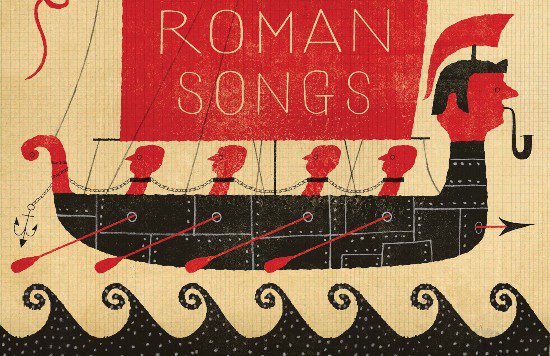Every few years I re-read Wislawa Szymborska’s collection of poems, View With a Grain of Sand. Sometimes this is something I plan to do, other times it happens by accident when I pick it up meaning only to look up one phrase or one stanza of something — “Cat in an Empty Apartment,” maybe, or “Clothing” because what’s that line about “usefulness suddenly prolonged“? — and then get distracted by other things I wasn’t looking for and, hours later, can’t remember what it was I was initially trying to find.

Szymborska is one of my favorite poets. She has a wry, wistful pessimism about our human condition that’s intermixed with a determination to find and nurture grounds for hope and joy. View With a Grain of Sand is thus one of my favorite books — a perpetual source of wisdom and beauty.
But it’s also true, of course, that Wislawa Szymborska did not write View With a Grain of Sand. She wrote Widok z ziamkiem piasku, the Polish title of her collection of Polish language poems which I have never read and cannot read because I am unable to read Polish. I’m told that Widok z ziamkiem piasku means “view with a grain of sand” — that it conveys the same meaning as accurately as is possible. But I have to take the translators’ word for that. So did Szymborska, since she did not read English any more than I can read Polish.
So there’s a real sense in which I have never read the poems of Wislawa Szymborska. I have only read the translations of those poems provided by Stanislaw Baranczak and Clare Cavanagh or by Joanna Trzeciak. These are beautiful translations. They are also — I am assured — painstakingly accurate works, preserving Szymborska’s precision of detail and a strong sense of her rhythm and rhyme. Or, again, so I have been told since, again, I am unable to evaluate that for myself. Reading anything in translation always requires a great deal of trust in the capability and integrity of the translators.
This means I need to keep in mind two seemingly contradictory ideas when I rely on the work of translators: 1) Cut them some slack, because translation is a very difficult, often thankless job; and 2) Cut them no slack at all because I am wholly reliant on their work and thus wholly vulnerable to their errors and misdirections.
Both of those ideas mean that its helpful for translators to be transparent about the how and the what and the why of the choices they make in translation. For a great example of this, here is Clare Cavanagh’s translation of Szymborska’s “Consolation” — a poem involving Darwin reading Dickens. And here is Cavanagh herself writing about that translation, the rare occasion on which she was able to question Szymborska about those choices. It’s mostly about why the dog’s name had to be “Fido,” but not at all only about that.
This pertains to our ongoing discussion of the English Standard Version translators’ clumsy attempts to handle the biblical clobber-texts on slavery (See Part 1 here, Part 2, and Part 3).
The worst part of this blundering, I think, was their decision to get rid of the footnotes they had relied on in earlier revisions of the ESV. Translation always involves difficult choices, but even if the earlier footnotes may not have done a wholly satisfying job in explaining the reasons for those choices, they served the important function of reminding English-language readers that choices have to be made. By eliminating the footnote, they attempted — deliberately, it seems — to create the illusion that the ESV is a kind of magically inspired work of translation that doesn’t involve such choosing. That doesn’t inspire us to trust the translators’ capability or integrity as we must to rely on their work.
The ESV translators, in other words, seem intent on encouraging the kind of illiterate ignorance demonstrated by Southern Baptist culture-warrior Owen Strachan in a widely mocked tweet from earlier this week.
Just so you know:
There is not a single edit you could make to Scripture to improve it.
Anything you would do to amend so much as a biblical comma would drastically demote it.
You can’t improve the Word of God. You’d only ruin perfection.
Keep your edits on the shelf.
— Owen Strachan (@ostrachan) July 18, 2021
Strachan wrote: “Just so you know: There is not a single edit you could make to Scripture to improve it. Anything you would do to amend so much as a biblical comma would drastically demote it. You can’t improve the Word of God. You’d only ruin perfection. Keep your edits on the shelf.”
One of the many problems there is that there is no such thing as a “biblical comma.” The original biblical manuscripts — none of which we have access to — were written long before any such punctuation was invented. Every comma and period and semicolon and quotation mark you find in whatever translation of the Bible you’re reading is, explicitly, an edit and an amendment made to improve the clarity of the original text.
I’m grateful for these edits and amendments. After all, if it were written like many of the biblical manuscripts we have — as a few folks joked on Twitter — Strachan’s tweet would’ve looked something like this:
JSTSKNWTHRSNTSNGLDTCLDMKTSCRPTRTMPRVTNTHNGWLDDTMNDSMCHSBBLCLCMMWLDDRSTCLLDMTTCNTMPRVTWRDFGDDNLRNPRFCTNKPYRDTSNTSHLF
Thus Strachan’s clownish attempt here to pose as a bold Defender of the Authority of the Word of God exposes him as a naive, strangely incurious, and only semi-literate student of the very text he claims to revere.
The translators working to produce the ESV know better. They’re aware of the monumental difficulty of translating from dead languages and long-departed cultural contexts. But they’re also marketing their translation to DAWGs like Strachan, so they’re willing to play into and play along with the defiantly ignorant pretense he exemplifies. They’re willing to invite their readers to believe that the commas they’re inserting and the choices they’re making are little more than their transcription of divine dictation, as though they were merely scribes copying the words provided by a seer stone that magically interprets the symbols on golden plates.
Inviting or allowing readers of a translation to believe such nonsense is irresponsible. It’s a betrayal of the translators’ vocation just as severe as any other act of “biblical modification.”
– – – – – – – – – – – –
Here are a few other recent items I’ve encountered on the difficulties of translation:
• “What Evangelicals Just Don’t Know About Bible Translations”
• The Bible for Normal People Podcast Ep. 173: “Cheryl B. Anderson — The Ethical Impact of Biblical Interpretation”
• “Even Racists Got the Blues”
• “They Might Be Giants’ John Linnell Releases an EP of Songs in Latin”












